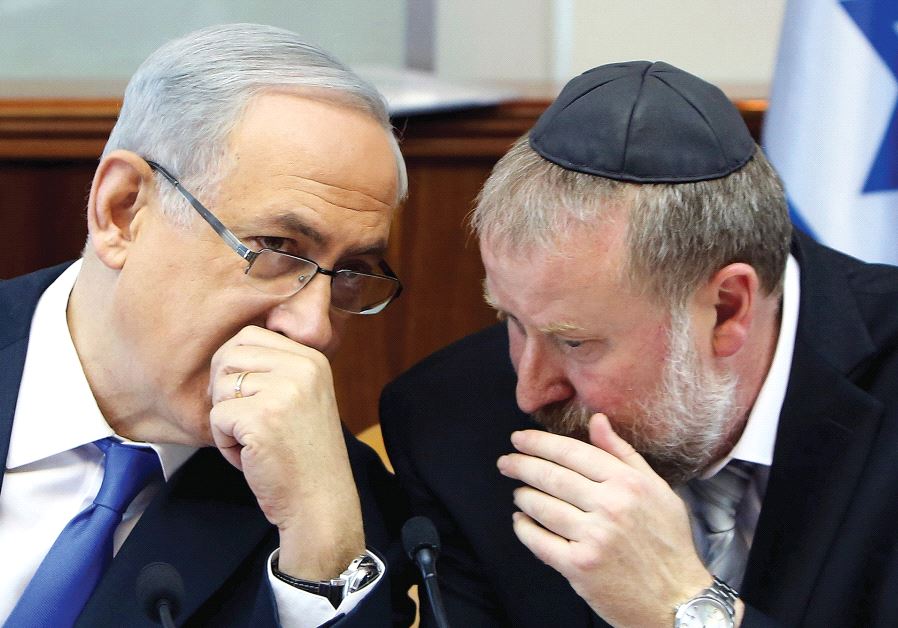PM lawyers push to delay pre-indictment hearing, receive police evidence
After months of speculation, Mandelblit announced on February 28 his intent to indict Netanyahu for bribery, fraud and breach of trust.
 PRIME MINISTER BENJAMIN NETANYAHU consults with Avichai Mandelblit.
PRIME MINISTER BENJAMIN NETANYAHU consults with Avichai Mandelblit.